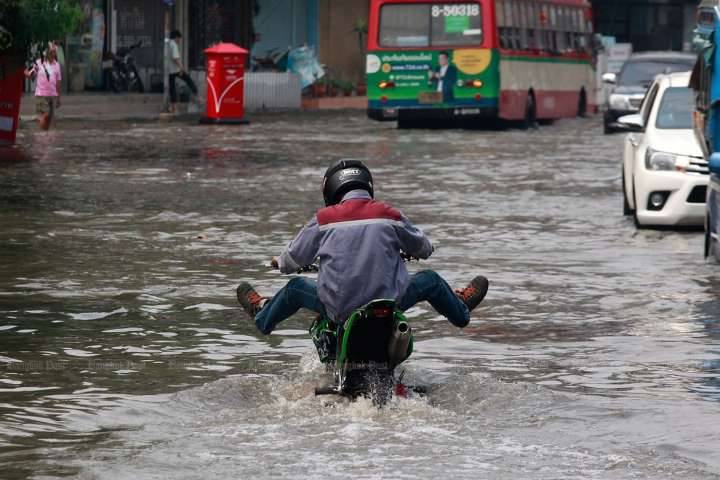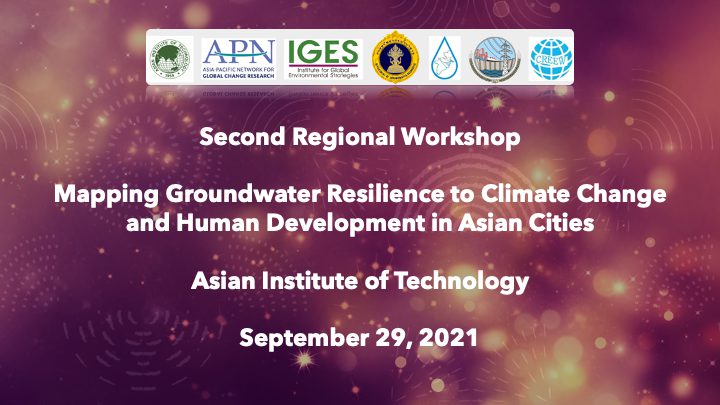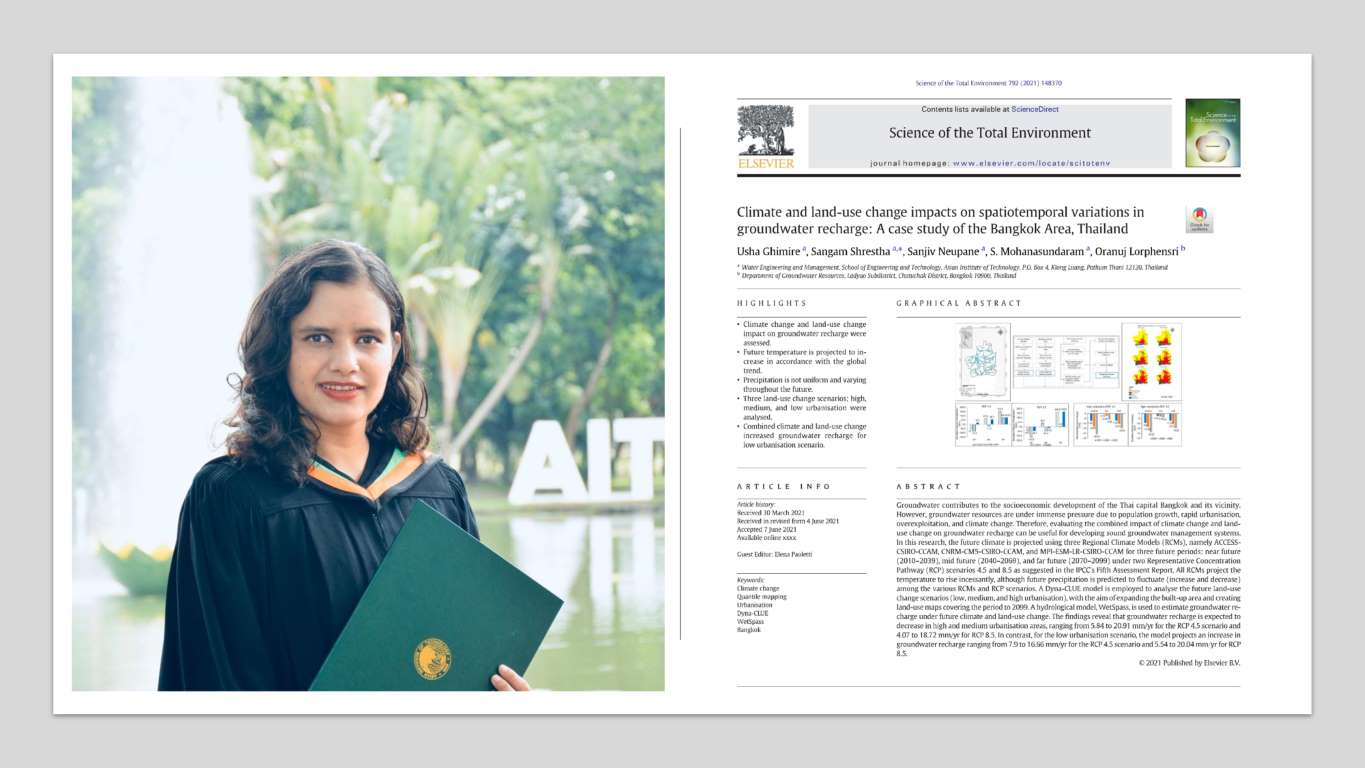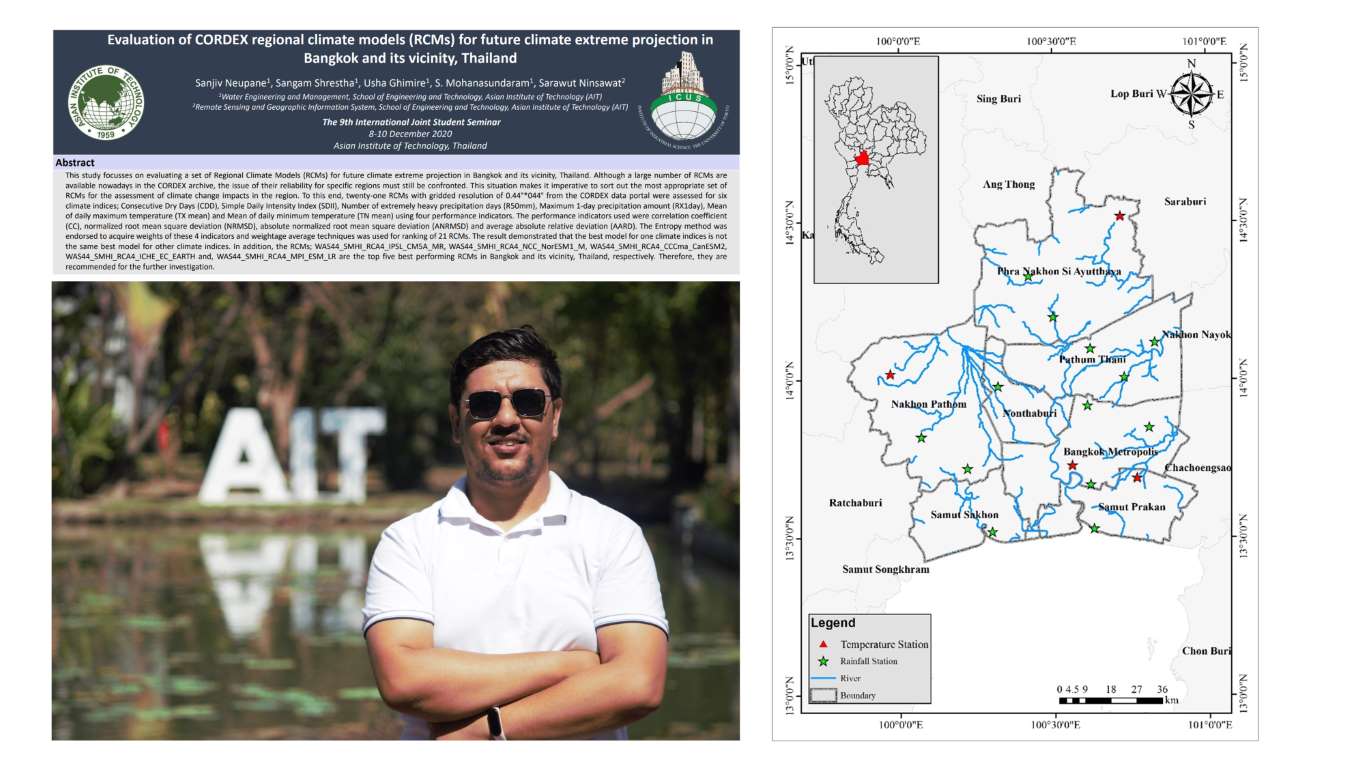
Climate change and unplanned urbanisation will result in a decrease in groundwater resources and intensified flood risk in Bangkok. A study from the Asian Institute of Technology (AIT) conducted by Sanjiv Neupane and Usha Ghimire share the research findings during an online regional workshop entitled “Mapping Groundwater Resilience to Climate Change and Human Development in Asian Cities”. According to the study, rising temperatures of 2.5C to 3.8C in the worst-emission scenario will affect rainfall and groundwater, driving a growing population to peril by the end of the 21st century.
Prof Dieter Trau, dean of the AIT School of Engineering and Technology, said as major cities in the Asian region, including Bangkok, rely either fully or partially on groundwater as part of the water supply network, the impact of climate change will be intensified with more droughts and floods. In addition, current factors such as land-use change, population growth, industrial development, and agriculture-area expansion are also affecting groundwater resources, Prof Trau said. The integrated model-based study conducted in Bangkok and its vicinity found that the groundwater resources are expected to be negatively impacted by climate change and the expansion of urban areas,” he said. “The climate change results show that both maximum and minimum temperatures are likely to increase by 2.5C and 3.8C, respectively, under the worst-emission scenario at the end of this century. Similarly, rainfall is projected to vary in the future in Bangkok and its vicinity. “The combined impact of climate change and urbanisation will reduce groundwater recharge into aquifers, hence reducing its availability in the future,” he said.
Prof Sangam Shrestha of AIT who led the workshop said the predicted decline in groundwater recharge rates will generate large runoffs, resulting in urban floods that could prove devastating for a city like Bangkok. “Since expansion of the built-up area and corresponding land-use change will have an immense impact on groundwater recharge, rigid regulations and effective urban planning policies must be implemented to manage the haphazard increase in the built-up area of Bangkok and its vicinity,” said Prof Shrestha.
Oranuj Lorphensri from the Ministry of Natural Resources and Environment suggested that research findings should be presented in a way that makes it easy for both the public and media to understand as well as convince the government to act.
Note: Adapted from Bangkok Post



